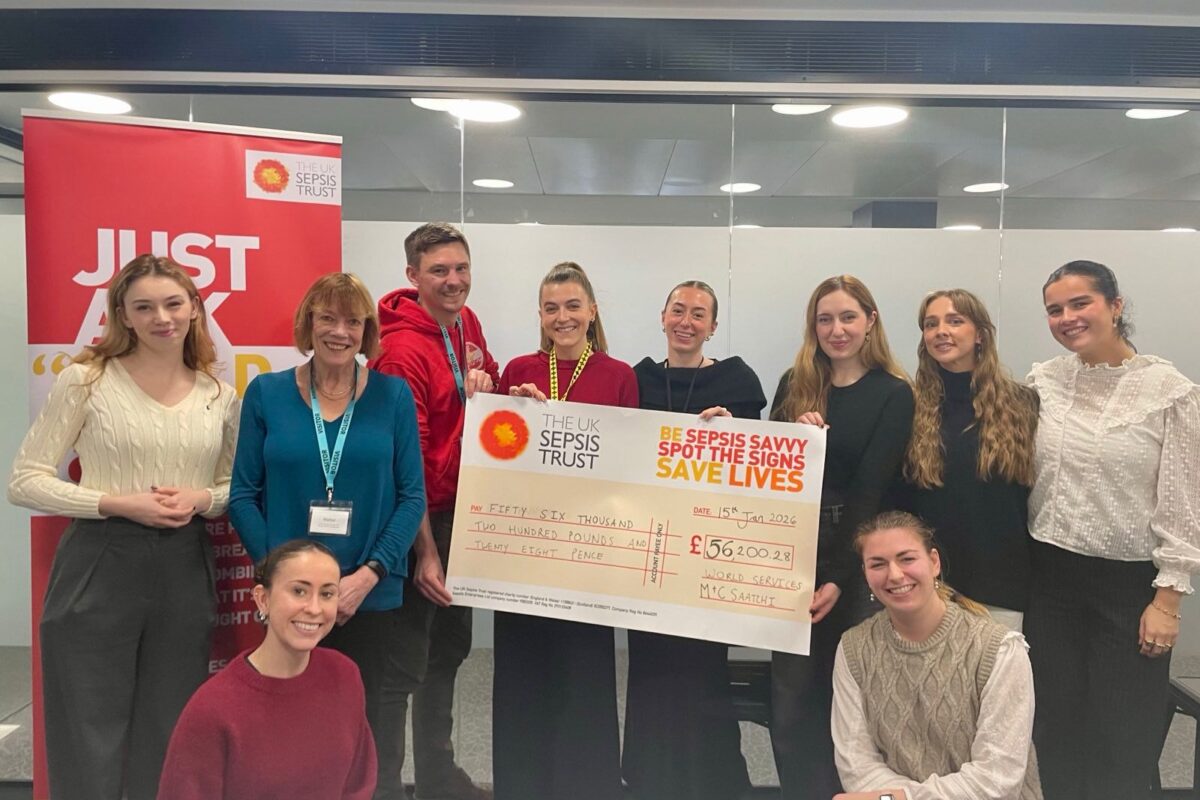20% of COVID-19 survivors at risk of sepsis within a year of being discharged – costing Government additional £1bn unless diagnosed early
UK Sepsis Trust asks Government to invest in awareness campaign to save millions of pounds and hundreds of lives
£1m investment could save hundreds of lives and £200m in treatment and benefits
245,000 people are affected by sepsis in the UK with at least 48,000 people losing their lives every year
The UK Sepsis Trust (UKST) estimates that close to 100,000 people are going to be discharged from hospital having had COVID-19 and, of these, 20% are likely to develop sepsis within the first 12 months. In partnership with the UK Sepsis Trust (UKST), the York Health Economics Consortium have calculated that for every patient who is diagnosed early there is a cash saving to the NHS of over £5,500, meaning that 20,000 sepsis patients could cost more than £1bn in patient care and benefits.
If 50% of these patients can be diagnosed early through a simple awareness campaign – similar to the ‘Just Ask: Could it be Sepsis?’ campaign already successfully conducted by the UKST – this will generate savings of over £50m in direct cash costs through treatment savings and £514m for Government when mortality benefits are included. It is estimated that the mortality rate from sepsis has been reduced by 33% since the previous campaign was launched five years ago, equating to circa 14,500 patients per annum.
The UKST has therefore launched a new ‘Blurred Lines’ health communications campaign to raise awareness of the relationship between COVID-19 and sepsis, and to offer patient support to those affected via their COVID-19 Recovery Response programme. The UKST called on 11 London’s health charity communications expertise to create striking and disruptive content for social media, progressing the ‘Just Ask’ creative. The UKST will also run press advertisements in multiple publications, both offline and online in social and programmatic, where free advertising is available.
Dr. Ron Daniels, Founder and Director of UK Sepsis Trust, said: “This shocking data serves to remind us of the enormity of the threat of infectious disease to mankind. We urgently need all health professionals, as well as the general public, to be aware of the signs of sepsis and subsequently avoid adding to the magnitude of this pandemic. Failing to do so will apply even greater pressure on the NHS as they face traditional winter pressures and potentially a second wave of COVID-19.”
“The UK Sepsis Trust has written, with the support of Rt Hon Jeremy Hunt, to Rt Hon Matt Hancock and Sir Simon Stevens to ask for investment in the ‘Blurred Lines’ awareness campaign – £1m investment could save hundreds of lives and £200m in treatment and benefits further down the line.”
Nick Hex, Associate Director for the NHS & Public Sector, said: “There is a substantial economic cost associated with sepsis, both in terms of direct costs to the health system and costs to the wider economy. Raising awareness of sepsis can lead to avoidance of some of these costs through earlier identification and treatment.”
Sepsis (also known as blood poisoning) is the immune system’s overreaction to an infection or injury. Normally the immune system fights infection but, sometimes, it attacks the body’s own organs and tissues. If not treated immediately, sepsis can result in organ failure and death, however with early diagnosis it can be treated with antibiotics. In the UK alone, 245,000 people are affected by sepsis with at least 48,000 people losing their lives in sepsis-related illness every year.
The recent ‘Global Burden of Disease Report’ estimated that sepsis affected a staggering 48.9 million people and claimed 11 million lives worldwide in 2017. Manifestations of sepsis and septic shock are frequently the final pathway for emerging infectious disease threats such as the COVID-19 pandemic and the recent Ebola outbreaks, contributing to an increase in the overall global burden of sepsis.
About UK Sepsis Trust
The UK Sepsis Trust was founded in 2012 by NHS consultant Dr Ron Daniels BEM. Renowned for his systems and translational expertise, Ron had spent the previous seven years developing and disseminating the Sepsis 6 pathway across the NHS and globally.
The UKST’s goal is to end preventable deaths from sepsis and improve outcomes for sepsis survivors. The Trust believes that earlier diagnosis and treatment across the UK would save several thousand lives a year.
About the York Health Economics Consortium
York Health Economics Consortium (YHEC) is a health economic consulting company formed in 1986 and wholly owned by the University of York. YHEC is the University of York’s main consultancy provider of health economics expertise.
YHEC has over 50 members of staff and its purpose is to provide national and international consultancy and research in health economics to the NHS and the pharmaceutical and health care industries.
For press enquiries email info@sepsistrust.org or call 0800 389 6255



